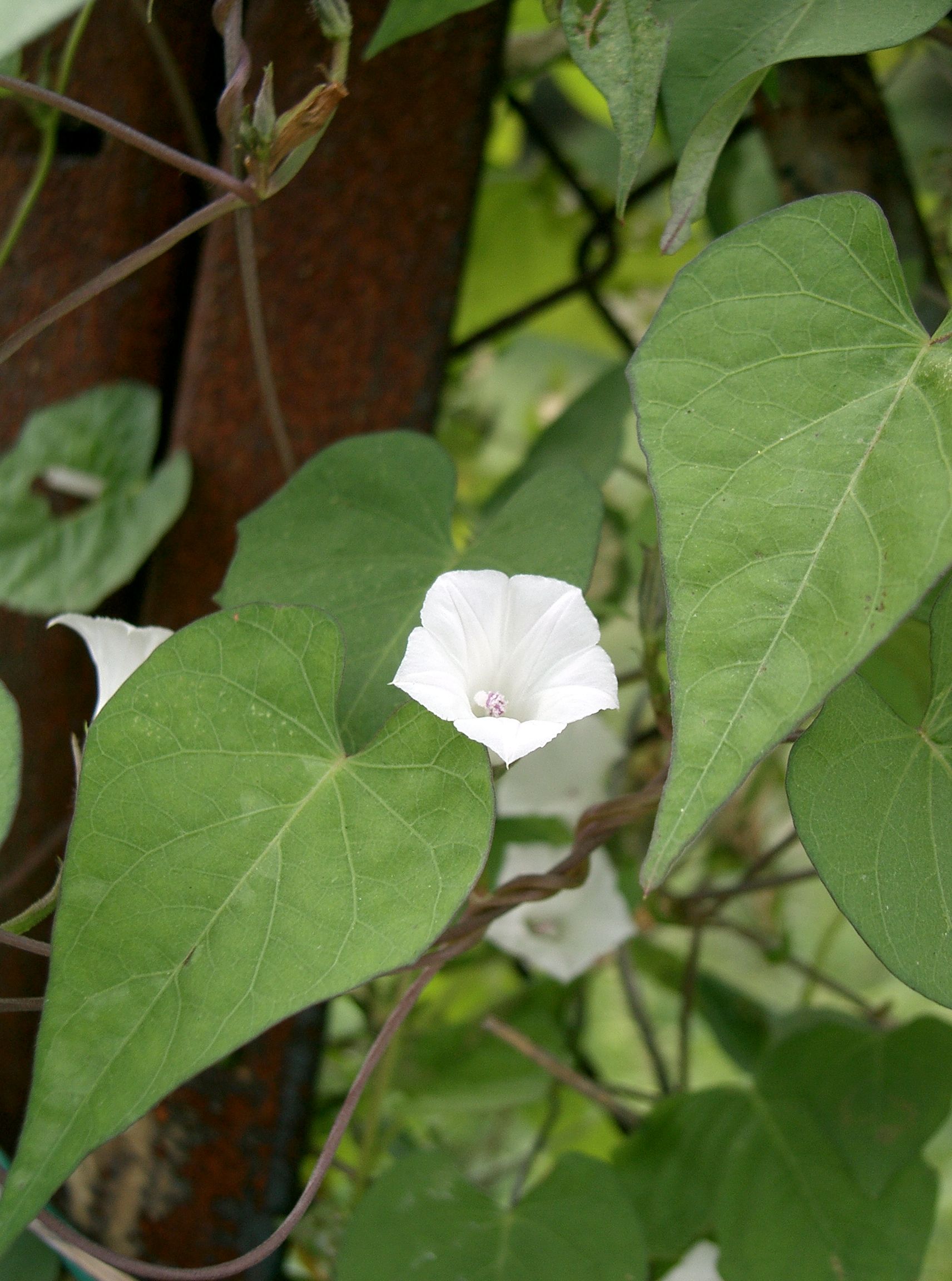|
List Of Ipomoea Species
This is a list of the 644 accepted species in the genus ''Ipomoea''. ''Ipomoea'' species * '' Ipomoea abrupta'' R.Br. * '' Ipomoea abutiloides'' (Kunth) G.Don * '' Ipomoea abyssinica'' (Choisy) Hochst. * '' Ipomoea acanthocarpa'' (Choisy) Hochst. ex Schweinf. & Asch. * '' Ipomoea acrensis'' J.R.I.Wood & Scotland * '' Ipomoea aculeata'' Blume * '' Ipomoea acutisepala'' O'Donell * '' Ipomoea adenioides'' Schinz * '' Ipomoea adumbrata'' Rendle & Britten * '' Ipomoea aemilii'' (O'Donell) J.R.I.Wood & R.Degen * '' Ipomoea aequiloba'' J.R.I.Wood & Scotland * ''Ipomoea alba'' L. – moon vine * '' Ipomoea albivenia'' (Lindl.) Sweet * '' Ipomoea alexandrae'' D.F.Austin * '' Ipomoea alterniflora'' Griseb. * '' Ipomoea altoamazonica'' J.R.I.Wood & Scotland * '' Ipomoea altoparanaensis'' O'Donell * '' Ipomoea amazonica'' (D.F.Austin & Staples) J.R.I.Wood & Scotland * '' Ipomoea amnicola'' Morong – red-center morning glory * '' Ipomoea ampullacea'' Fernald * '' Ipomoea ana-mari ... [...More Info...] [...Related Items...] OR: [Wikipedia] [Google] [Baidu] |
Ipomoea
''Ipomoea'' () is the largest genus in the plant family Convolvulaceae, with over 600 species. It is a large and diverse group, with common names including morning glory, water convolvulus or water spinach, sweet potato, bindweed, moonflower, etc. The genus occurs throughout the tropical and subtropical regions of the world, and comprises annual and perennial herbaceous plants, lianas, shrubs, and small trees; most of the species are twining climbing plants. Their most widespread common name is morning glory, but some species in related genera bear that same common name and some ''Ipomoea'' species are known by different common names. Those formerly separated in ''Calonyction'' (Greek "good" and , , , "night") are called moonflowers. The name ''Ipomoea'' is derived from the Greek , (, ), meaning "woodworm", and (), meaning "resembling". It refers to their twining habit. Uses and ecology Human uses of ''Ipomoea'' include: *Most species have spectacular, colorful ... [...More Info...] [...Related Items...] OR: [Wikipedia] [Google] [Baidu] |
Ipomoea Adenioides
''Ipomoea'' () is the largest genus in the plant family Convolvulaceae, with over 600 species. It is a large and diverse group, with common names including morning glory, water convolvulus or water spinach, sweet potato, bindweed, moonflower, etc. The genus occurs throughout the tropical and subtropical regions of the world, and comprises annual and perennial herbaceous plants, lianas, shrubs, and small trees; most of the species are twining climbing plants. Their most widespread common name is morning glory, but some species in related genera bear that same common name and some ''Ipomoea'' species are known by different common names. Those formerly separated in ''Calonyction'' (Greek "good" and , , , "night") are called moonflowers. The name ''Ipomoea'' is derived from the Greek , (, ), meaning "woodworm", and (), meaning "resembling". It refers to their twining habit. Uses and ecology Human uses of ''Ipomoea'' include: *Most species have spectacular, colorful fl ... [...More Info...] [...Related Items...] OR: [Wikipedia] [Google] [Baidu] |
Ipomoea Ampullacea
''Ipomoea'' () is the largest genus in the plant family Convolvulaceae, with over 600 species. It is a large and diverse group, with common names including morning glory, water convolvulus or water spinach, sweet potato, bindweed, moonflower, etc. The genus occurs throughout the tropical and subtropical regions of the world, and comprises annual and perennial herbaceous plants, lianas, shrubs, and small trees; most of the species are twining climbing plants. Their most widespread common name is morning glory, but some species in related genera bear that same common name and some ''Ipomoea'' species are known by different common names. Those formerly separated in ''Calonyction'' (Greek "good" and , , , "night") are called moonflowers. The name ''Ipomoea'' is derived from the Greek , (, ), meaning "woodworm", and (), meaning "resembling". It refers to their twining habit. Uses and ecology Human uses of ''Ipomoea'' include: *Most species have spectacular, colorful fl ... [...More Info...] [...Related Items...] OR: [Wikipedia] [Google] [Baidu] |
Thomas Morong
Rev. Thomas Morong (April 15, 1827 – April 26, 1894) was an American botanist and clergyman. Biography Morong was born in Cahawba, Alabama to a Massachusetts-born father, Thomas Morong, and a Maryland-born mother Jane Travers. His father owned a store and a plantation. After the death of his father, 15-year-old Morong and his family moved to Woburn, Massachusetts.Deane, Walter. “Thomas Morong”. Botanical Gazette 19.6 (1894): 225–228. Web... After graduating from the Warren Academy and from Amherst, he entered Harvard Law School. However, he soon dropped law school, entering Andover Theological Seminary where he graduated in 1853. The next year he was ordained as a congregational minister. Throughout most of the rest of his life he served at various churches throughout Massachusetts. In 1861, he built his own greenhouse to study botany. He predominantly worked as a field botanist in the Eastern states. In 1888, he retired from the ministry to focus on botany full-time. T ... [...More Info...] [...Related Items...] OR: [Wikipedia] [Google] [Baidu] |
Ipomoea Amnicola
''Ipomoea amnicola'' is a species of plant in the bindweed family, Convolvulaceae. It is commonly called redcenter morning-glory. It is found in Mexico, much of South America and has been successfully introduced in the US states of Arkansas, Missouri and Texas. References amnicola ''Amnicola'' is a genus of very small freshwater snails which have an operculum. ''Amnicola'' species are aquatic prosobranch gastropod mollusks in the family Amnicolidae according to the taxonomy of the Gastropoda (Bouchet & Rocroi, 2005). ... Flora of South America Flora of Mexico Flora of Missouri Flora of Texas Flora without expected TNC conservation status {{Solanales-stub ... [...More Info...] [...Related Items...] OR: [Wikipedia] [Google] [Baidu] |
Ipomoea Amazonica
''Ipomoea'' () is the largest genus in the plant family Convolvulaceae, with over 600 species. It is a large and diverse group, with common names including morning glory, water convolvulus or water spinach, sweet potato, bindweed, moonflower, etc. The genus occurs throughout the tropical and subtropical regions of the world, and comprises annual and perennial herbaceous plants, lianas, shrubs, and small trees; most of the species are twining climbing plants. Their most widespread common name is morning glory, but some species in related genera bear that same common name and some ''Ipomoea'' species are known by different common names. Those formerly separated in ''Calonyction'' (Greek "good" and , , , "night") are called moonflowers. The name ''Ipomoea'' is derived from the Greek , (, ), meaning "woodworm", and (), meaning "resembling". It refers to their twining habit. Uses and ecology Human uses of ''Ipomoea'' include: *Most species have spectacular, colorful fl ... [...More Info...] [...Related Items...] OR: [Wikipedia] [Google] [Baidu] |
Ipomoea Altoparanaensis
''Ipomoea'' () is the largest genus in the plant family Convolvulaceae, with over 600 species. It is a large and diverse group, with common names including morning glory, water convolvulus or water spinach, sweet potato, bindweed, moonflower, etc. The genus occurs throughout the tropical and subtropical regions of the world, and comprises annual and perennial herbaceous plants, lianas, shrubs, and small trees; most of the species are twining climbing plants. Their most widespread common name is morning glory, but some species in related genera bear that same common name and some ''Ipomoea'' species are known by different common names. Those formerly separated in ''Calonyction'' (Greek "good" and , , , "night") are called moonflowers. The name ''Ipomoea'' is derived from the Greek , (, ), meaning "woodworm", and (), meaning "resembling". It refers to their twining habit. Uses and ecology Human uses of ''Ipomoea'' include: *Most species have spectacular, colorful fl ... [...More Info...] [...Related Items...] OR: [Wikipedia] [Google] [Baidu] |
Ipomoea Altoamazonica
''Ipomoea'' () is the largest genus in the plant family Convolvulaceae, with over 600 species. It is a large and diverse group, with common names including morning glory, water convolvulus or water spinach, sweet potato, bindweed, moonflower, etc. The genus occurs throughout the tropical and subtropical regions of the world, and comprises annual and perennial herbaceous plants, lianas, shrubs, and small trees; most of the species are twining climbing plants. Their most widespread common name is morning glory, but some species in related genera bear that same common name and some ''Ipomoea'' species are known by different common names. Those formerly separated in ''Calonyction'' (Greek "good" and , , , "night") are called moonflowers. The name ''Ipomoea'' is derived from the Greek , (, ), meaning "woodworm", and (), meaning "resembling". It refers to their twining habit. Uses and ecology Human uses of ''Ipomoea'' include: *Most species have spectacular, colorful fl ... [...More Info...] [...Related Items...] OR: [Wikipedia] [Google] [Baidu] |
Ipomoea Alterniflora
''Ipomoea'' () is the largest genus in the plant family Convolvulaceae, with over 600 species. It is a large and diverse group, with common names including morning glory, water convolvulus or water spinach, sweet potato, bindweed, moonflower, etc. The genus occurs throughout the tropical and subtropical regions of the world, and comprises annual and perennial herbaceous plants, lianas, shrubs, and small trees; most of the species are twining climbing plants. Their most widespread common name is morning glory, but some species in related genera bear that same common name and some ''Ipomoea'' species are known by different common names. Those formerly separated in ''Calonyction'' (Greek "good" and , , , "night") are called moonflowers. The name ''Ipomoea'' is derived from the Greek , (, ), meaning "woodworm", and (), meaning "resembling". It refers to their twining habit. Uses and ecology Human uses of ''Ipomoea'' include: *Most species have spectacular, colorful fl ... [...More Info...] [...Related Items...] OR: [Wikipedia] [Google] [Baidu] |
Ipomoea Alexandrae
''Ipomoea'' () is the largest genus in the plant family Convolvulaceae, with over 600 species. It is a large and diverse group, with common names including morning glory, water convolvulus or water spinach, sweet potato, bindweed, moonflower, etc. The genus occurs throughout the tropical and subtropical regions of the world, and comprises annual and perennial herbaceous plants, lianas, shrubs, and small trees; most of the species are twining climbing plants. Their most widespread common name is morning glory, but some species in related genera bear that same common name and some ''Ipomoea'' species are known by different common names. Those formerly separated in ''Calonyction'' (Greek "good" and , , , "night") are called moonflowers. The name ''Ipomoea'' is derived from the Greek , (, ), meaning "woodworm", and (), meaning "resembling". It refers to their twining habit. Uses and ecology Human uses of ''Ipomoea'' include: *Most species have spectacular, colorful fl ... [...More Info...] [...Related Items...] OR: [Wikipedia] [Google] [Baidu] |
Ipomoea Albivenia
''Ipomoea'' () is the largest genus in the plant family Convolvulaceae, with over 600 species. It is a large and diverse group, with common names including morning glory, Ipomoea aquatica, water convolvulus or water spinach, sweet potato, bindweed, Ipomoea alba, moonflower, etc. The genus occurs throughout the tropical and subtropical regions of the world, and comprises annual plant, annual and perennial plant, perennial herbaceous plants, lianas, shrubs, and small trees; most of the species are twining Vine, climbing plants. Their most widespread common name is morning glory, but some species in related genera bear that same common name and some ''Ipomoea'' species are known by different common names. Those formerly separated in ''Calonyction'' (Ancient Greek, Greek "good" and , , , "night") are called moonflowers. The name ''Ipomoea'' is derived from the Greek , (, ), meaning "woodworm", and (), meaning "resembling". It refers to their twining habit. Uses and ecolog ... [...More Info...] [...Related Items...] OR: [Wikipedia] [Google] [Baidu] |







